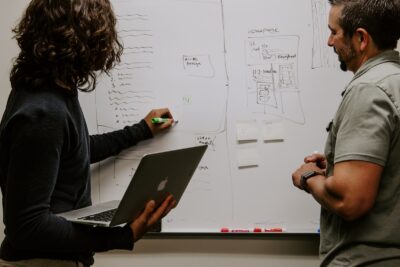Educational Foundations for Competitiveness: Insights from Julia Gillard
Explore the critical role of drawing insights from Julia Gillard’s perspective on the importance of investing in the education of people, innovation, and productivity for future growth. Discover how education contributes to skill development, enhanced productivity, and overall economic prosperity, shaping the future landscape of business and leadership.
Julia Gillard’s advocacy for education underscores its pivotal role in shaping the future landscape of competitiveness and innovation. In a rapidly evolving global economy, nations must prioritize investment in education to equip their citizens with the knowledge, skills, and competencies needed to thrive in the digital age. By laying strong educational foundations, countries can enhance their workforce’s ability to adapt to technological advancements, drive productivity, and maintain a competitive edge in the global marketplace.
Nurturing Innovation Through Education
Education serves as a catalyst for innovation, fostering a culture of creativity, critical thinking, and problem-solving. Julia Gillard’s emphasis on innovation highlights the transformative power of education in driving societal progress and economic prosperity. By providing individuals with access to quality education and lifelong learning opportunities, societies can unlock their innovative potential, leading to the development of groundbreaking technologies, solutions, and business ventures that propel growth and advancement.
Skills Development and Economic Productivity
Skills development lies at the heart of economic productivity and prosperity. Julia Gillard’s vision for education emphasizes the importance of equipping individuals with the skills and capabilities needed to succeed in the workforce of tomorrow. By investing in education and vocational training programs, governments and businesses can address skill shortages, reduce unemployment, and drive economic growth. A skilled workforce not only enhances productivity but also fuels innovation and competitiveness, laying the foundation for sustained economic success.
Leadership Development Through Education
Education plays a vital role in shaping the future generation of business leaders and entrepreneurs. Julia Gillard’s insights underscore the importance of fostering leadership skills and qualities through educational initiatives and professional development programs. By nurturing leadership talent and promoting a culture of continuous learning and growth, organizations can cultivate a pipeline of visionary leaders who drive innovation, foster collaboration, and navigate complex business challenges with confidence and resilience.
Julia Gillard’s advocacy for education extends beyond traditional academic settings to encompass lifelong learning and skills acquisition. In today’s dynamic business environment, individuals must embrace a mindset of continuous learning and adaptation to stay relevant and competitive. By fostering a culture of lifelong learning within organizations, leaders can empower their teams to upskill, reskill, and embrace new opportunities for growth and advancement. Lifelong learning not only enhances individual employability but also strengthens organizational agility and innovation, ensuring sustained success in an ever-changing world.
Education as a Catalyst for Social Change
Education serves as a powerful catalyst for social change, driving progress and prosperity across communities and nations. Julia Gillard’s commitment to education reflects its transformative impact on society, empowering individuals to overcome barriers, fulfill their potential, and contribute meaningfully to the economy and society. By investing in education as a fundamental human right and societal priority, governments, businesses, and communities can create a more inclusive, equitable, and sustainable future for all.
Building a Skilled Workforce for the Future
Investing in education is crucial for building a skilled workforce capable of meeting the demands of emerging industries and technologies. By providing quality education and training opportunities, governments and businesses can bridge the skills gap, ensuring that individuals have the expertise and capabilities needed to succeed in the jobs of tomorrow. A skilled workforce not only drives productivity and efficiency but also enhances a nation’s competitiveness on the global stage, attracting businesses and fostering economic growth and development.
#Education #Competitiveness #Innovation #SkillsDevelopment #Productivity #Leadership #LifelongLearning























